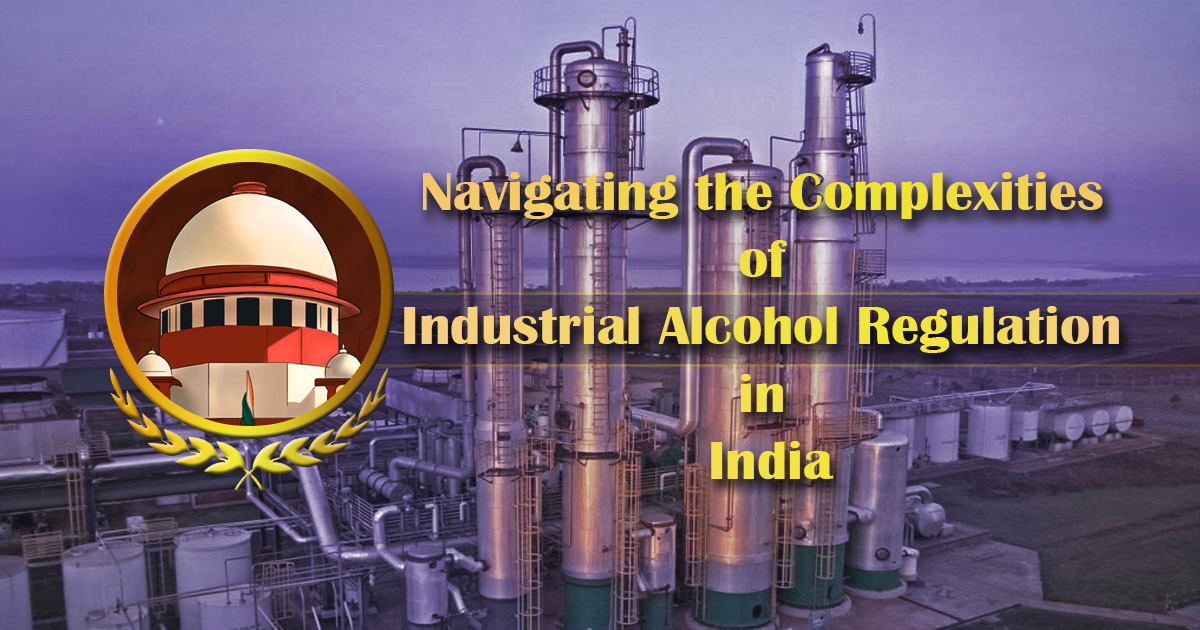
News
A nine-judge Constitution Bench of the Supreme Court questioned the Centre’s rigid position to have exclusive control over industrial alcohol without giving States even the opportunity to regulate its inflow and clandestine conversion to potable liquor for human consumption, posing a grave threat to public health.
Concept :
- Industrial alcohol, unlike alcoholic beverages, is not meant for human consumption (denatured).
- It finds applications in various sectors, including manufacturing pharmaceuticals, disinfectants, chemicals, and even biofuels.
Constitutional Framework:
State List (Entry 8):
- Entry 8 in the State List grants states authority over intoxicating liquor legislation, including production, possession, and sale.
Union List (Entry 52):
- Entry 52 in the Union List empowers the Parliament to legislate on industries deemed essential in the public interest.
Concurrent List (Entry 33):
- Entry 33 of the Concurrent List allows both state and central governments to enact laws regarding industries, with the stipulation that state laws must not contravene central laws.
Industrial Alcohol Regulation:
- Industrial alcohol falls under the purview of the Industries (Development and Regulation) Act, 1951 (IDRA), which provides for its regulation by the central government.
Key Issue:
- The primary issue revolves around determining whether states possess the authority to regulate industrial alcohol or if exclusive control rests with the central government.
 Chinmaya IAS Academy – Current Affairs Chinmaya IAS Academy – Current Affairs
Chinmaya IAS Academy – Current Affairs Chinmaya IAS Academy – Current Affairs
